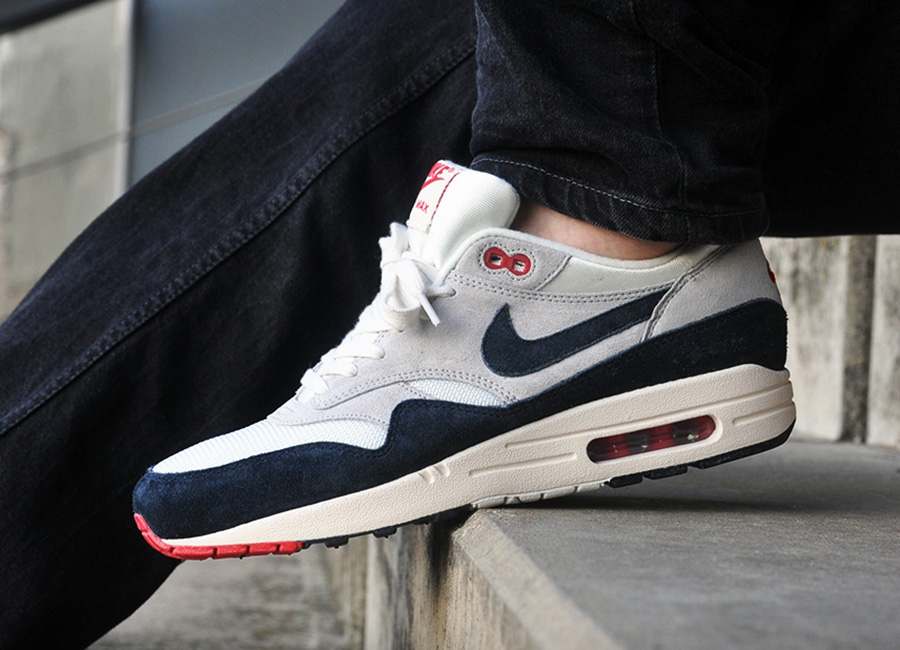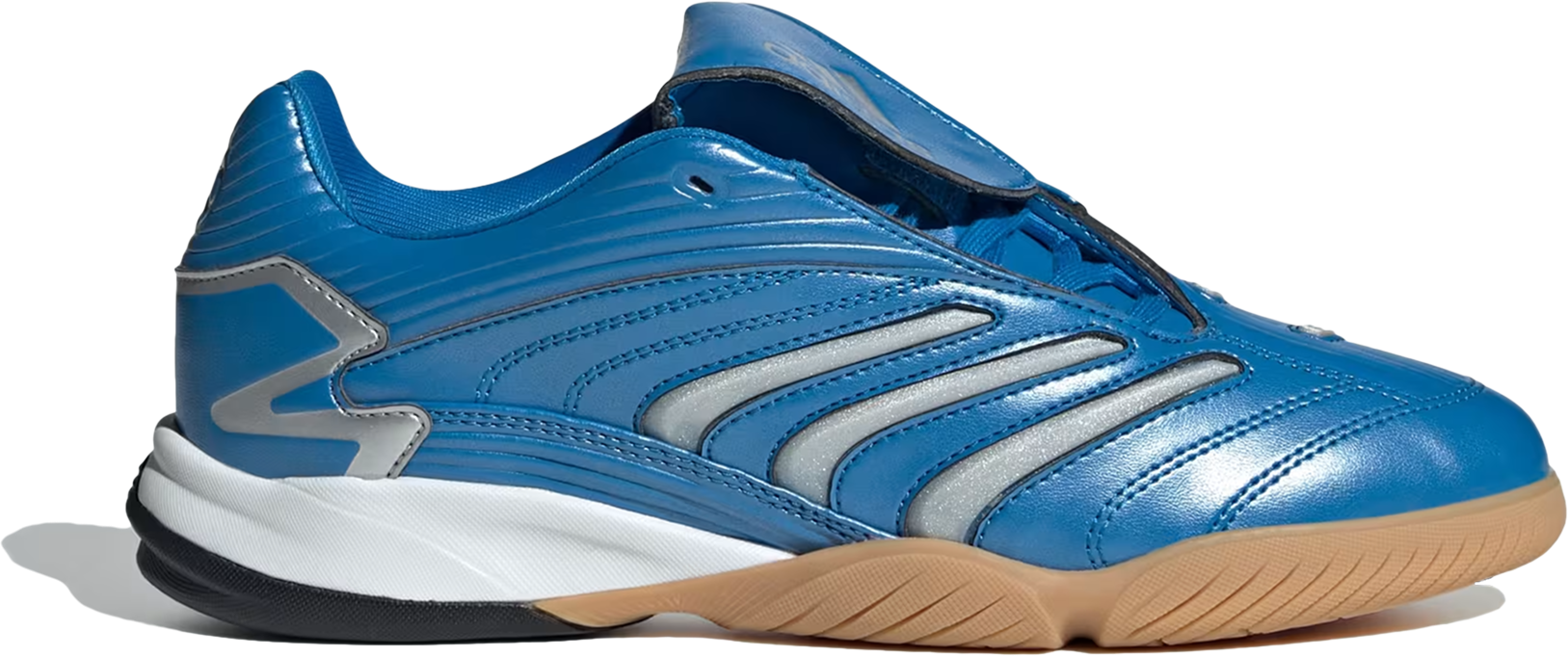
Not long after the introduction of adidas BOOST, the adi team is already prepared to unveil a second wave of innovation in 2013. This time around the goal is making athletes quicker, a goal achieved by the new adidas CrazyQuick technology. The new system is one that very much lives in the sole-a sole relying on four separate regions that need to be treated differently in order to increase athlete quickness. And believe us, they’re serious about increasing said quickness as the adidas CrazyQuick is their most tested and researched basketball sneaker yet.
At the unveiling held at the adidas office in NYC, Sneaker News got the chance to sit down with the team who helped bring this new technology to market. Stay tuned with us after the jump for an exclusive interview from the Adidas Innovation Team, shots of the upcoming product, and an in-depth look at the adidas CrazyQuick line. Also, keep in mind that the sneakers will debut on May 1st in the basketball and football categories, with the running and training fare currently set for a summer release.
Sneaker News: First off could you go ahead and introduce yourself to our readers who may not be familiar with your specific position within Adidas?
Al VanNoy: Alright, my name is Al VanNoy and I’m the global head of AIT. And AIT stands for the Adidas Innovation Team, so we’re the global innovation component of Adidas.
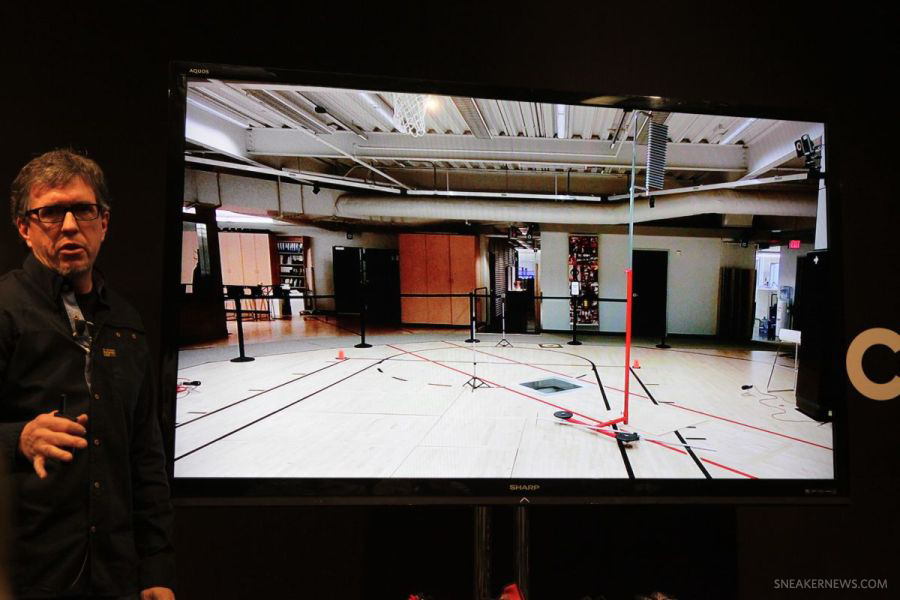
SN: Thanks. So when you first started off with the CrazyQuick line, what was the design question that you had to answer? What was the problem that you aimed to solve with the CrazyQuick technology?
AV: Well it started with basketball first of all. And just working with athletes a lot in our lab, one of the recurring things that that people said “Hey, my game is based on quickness and excitement. I’d love to be quicker, is there anything you can do to make me quicker?” So that recurring question/theme was it. We sat down with our innovation crew, which is this multidisciplinary team. You’ve got your bio-mechanics experts and your design talent and your engineering talent and some others around the table and you start brainstorming about: OK, how can you make a player quicker in basketball? One of the things that the science side came up with is that you have to minimize the amount of time your foot is on the court and maximize the amount of alignment and ability to use the forces to move in another direction.
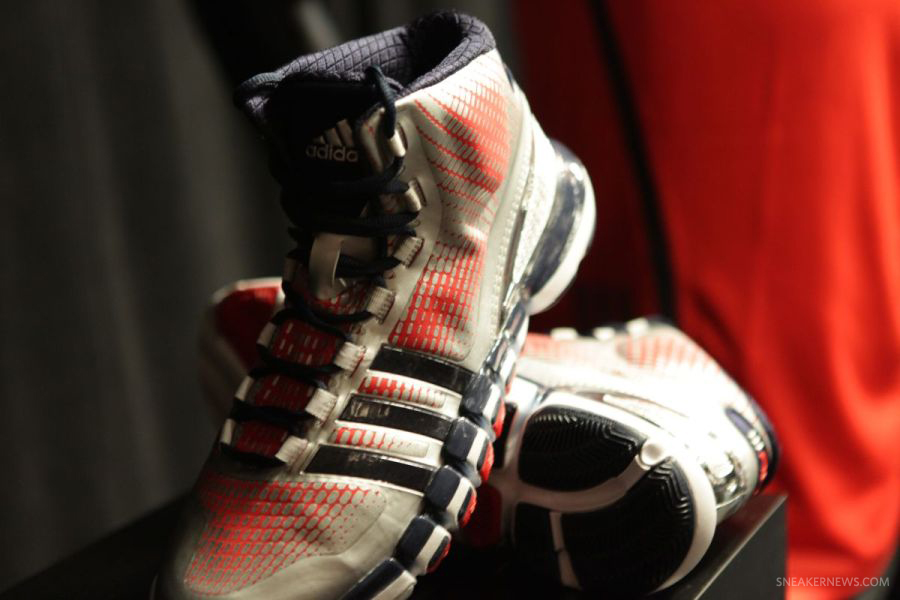
That was a really interesting insight from the science side. So what that led to was a deeper understanding of when the foot contacts the ground initially, how long it’s really on the ground. So it lands, it goes to mid-stance, and then it kind of rolls. And that’s all time-not quickness. That’s just slowing you down. So the theory was: if we broke the bottom of the shoe up in segments we could potentially allow joint alignment and allow the foot to be on the ground for less time. That would ideally increase traction because you have this adaptability of different elements. And so it was based on that insight from the science side, from the research guys, that we started thinking from an engineering and design side “OK, well how do we bring that to life? How do we manifest that?”
It started with us just looking at conventional bottoms and cutting them up. Just making different cut lines in them and then going and putting them in the lab and testing them. Putting them on players and asking them “What do you think?” So there’s the perceptive side and then there’s the measurable side of it. So we could do high-speed film and we can use a lot of the different tools we have in the research lab to really validate things. We started seeing a big trend where people started saying “Hey, I’m feeling like I don’t have to break the shoe in. And when I’m moving my feet are unrestricted. I can move just better and more naturally” From there we started saying “OK, we’re on to something good, what are the better ideas now that we’ve cut the bottom up?” Let’s take those and really start to evolve them to the point where we can highlight more and more of what this benefit really is. And then it led to more independent pods that have isolated areas of traction and isolated areas of function.
SN: So the pods then are based on the idea of four distinct sections of the foot and treating each one differently?

AV: Yeah, we knew that there’s a high element of traction that has to happen in this zone here [points to the horizontal middle of the sole]. You can see originally our groove was down the center and we found out that we can increase traction and increase movement if we created better traction in that area. So you can see how that idea is both elevated and adapted based on what we found out through testing.
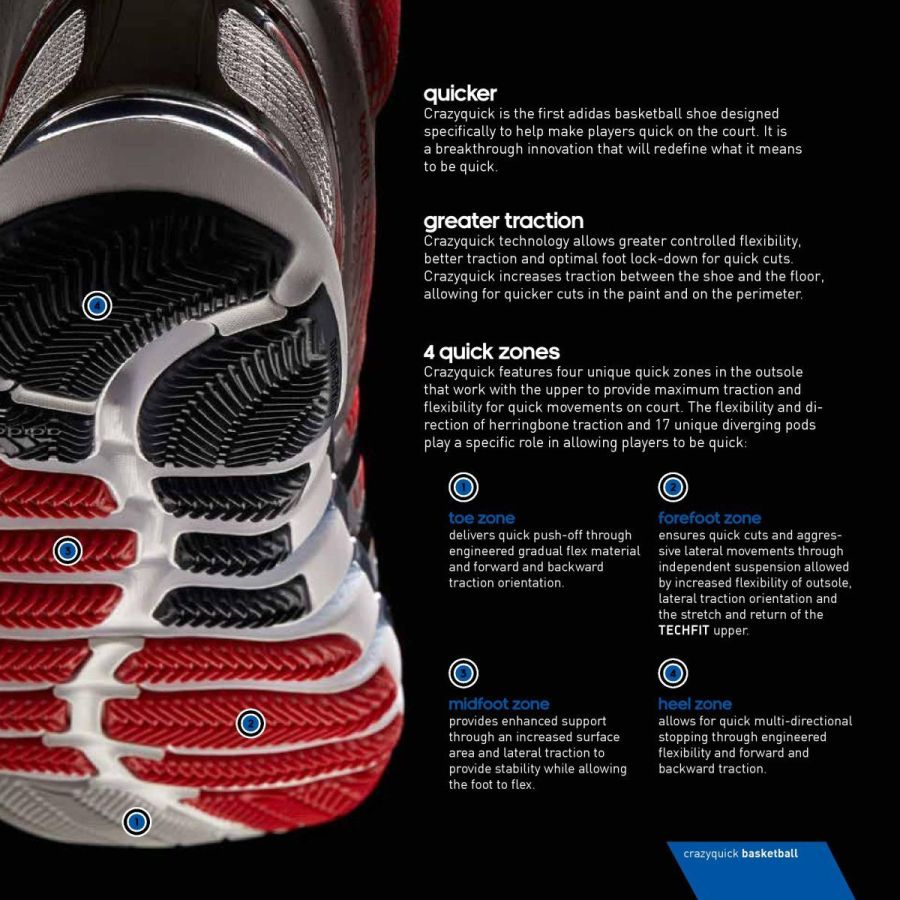
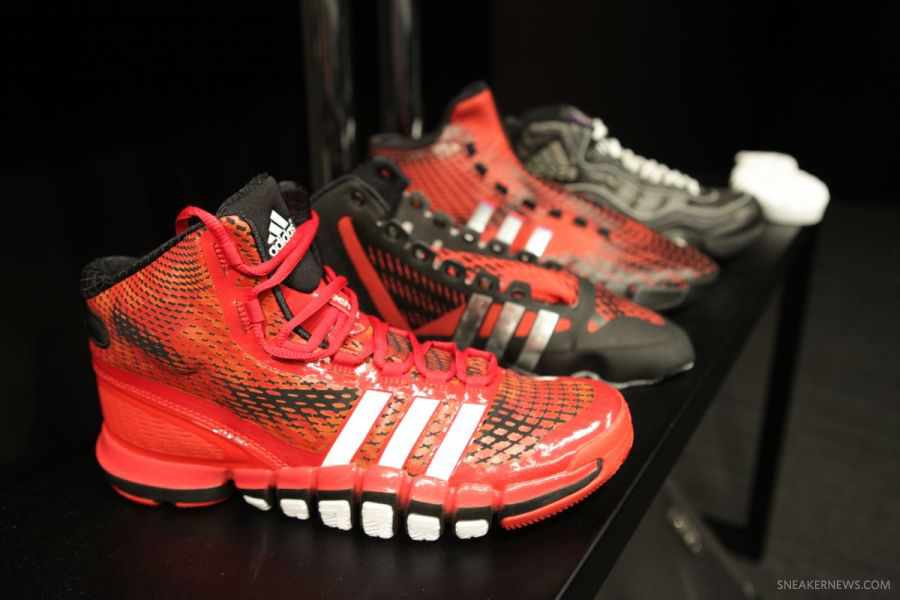
SN: You mention this being the most researched and tested basketball shoes the adidas team has put together. At what time during that long testing process did you know that you had it right?
AV: We started seeing things through the film that we’d never seen. We started seeing people that, traditionally, had terrible rollover on shoes. This was within more of an internal testing group of players before we started going outside, we started seeing that all of a sudden they weren’t doing that. And we said wow, that’s something we’ve never seen before. All of a sudden all of the forces were staying on the medial side and we’re not seeing that dramatic rollover. So we evolved it a little bit further, and we started bringing more and more athletes in. And their impression from the very first time was “Wow, I can move different, I don’t need to break the shoe in. I feel like I can just kind of flow and my game feels better” And then they started doing game-type movements in and around the basket and they just feel different and play better. From that point on we knew that we were on to something really different and really big.
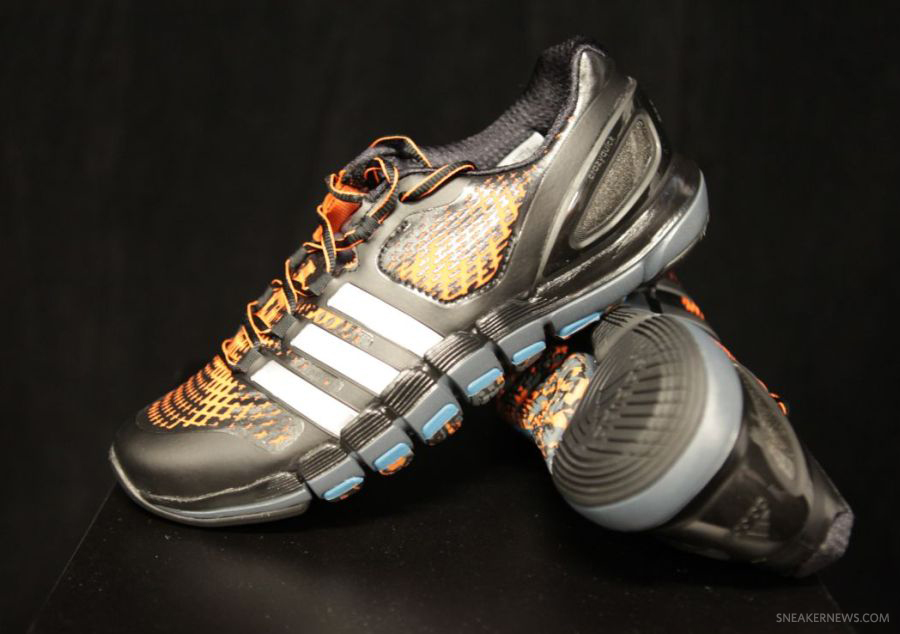
SN: adidas CrazyQuick seems like a technology that is very much based on the sole. How much of the upper helps push forward that overall goal of quickness achieved in the sole?
AV: So the sole is completely on it’s own, right? As you can see there’s a SPRINTFRAME that lays in, which tunes the torsion. We know we want torsion one way or another, so that adds to the performance. And then the upper, as Robbie was showing in his drawings, inside the upper are bands that link to these zonal properties. The holistic nature and notion of what this is really is what makes it good. It is very bottom focused and that’s where the immediate impressions come from when you start moving. The bottom feels different. But the upper, and how we exploit what this idea is-in next generations you’ll see the upper explore new territory based on what this [points to the sole] is doing. It’s going to be about how to bring it to life in an event bigger way.
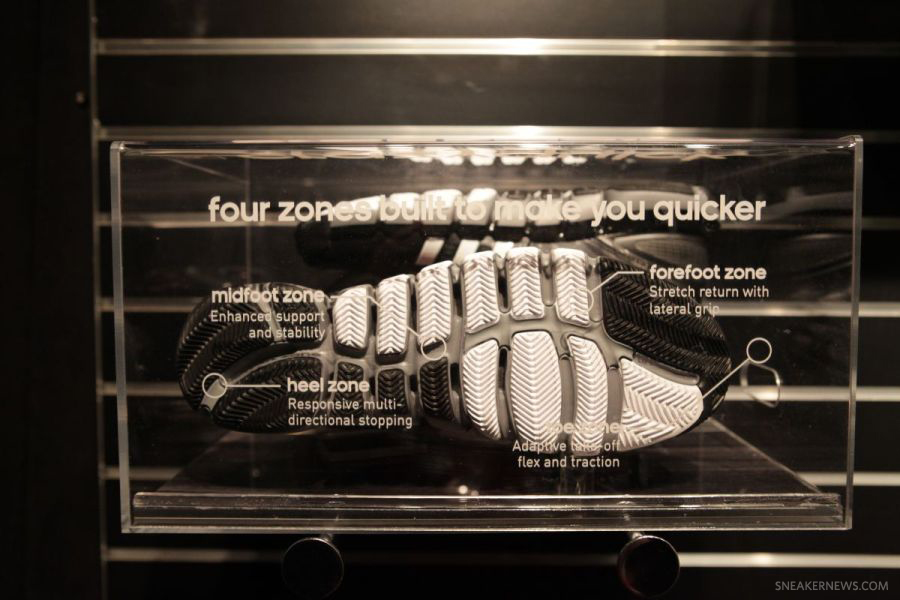
SN: It seems like the whole CrazyQuick technology is easily transferable to these other categories since the whole thing is working towards that overall goal of being quicker, which is something all athletes can obviously benefit from.
AV: Exactly, that’s our job-making athletes better.
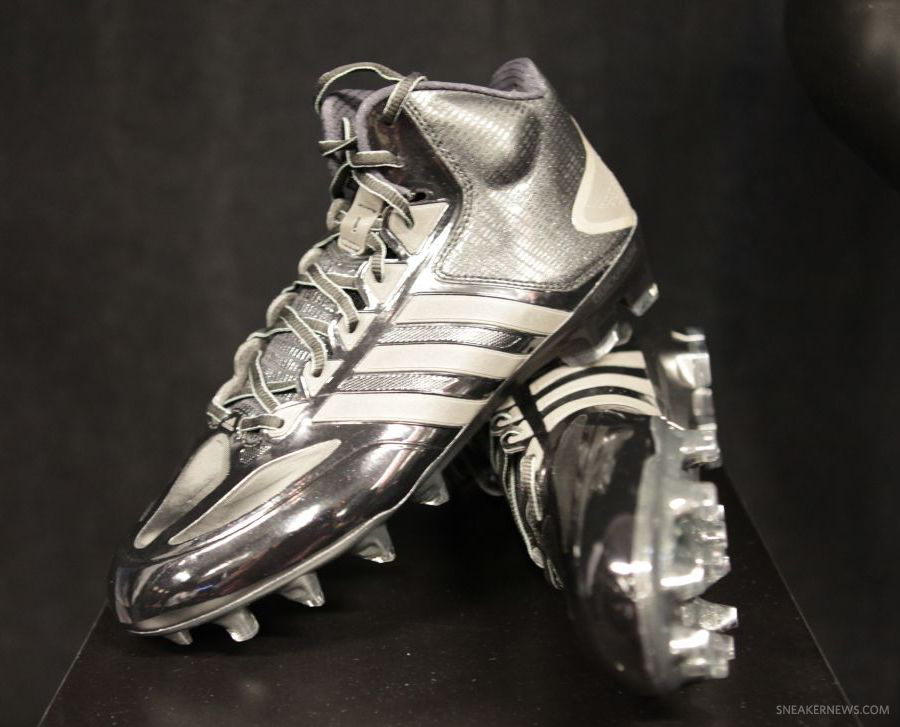
–Many thanks to the adidas team and Al VanNoy for the interview.–


